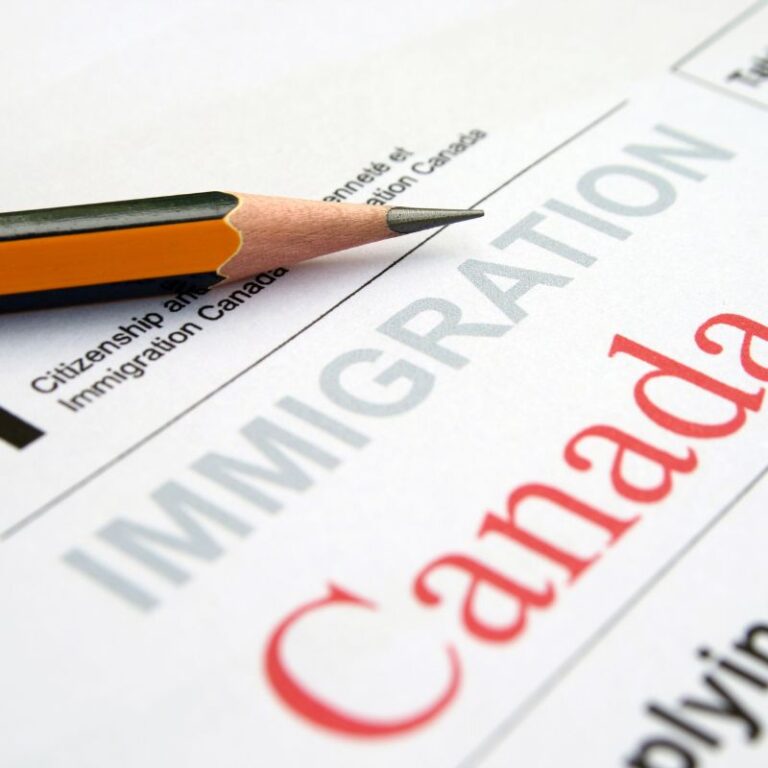Can I leave Canada immediately after receiving my confirmation of permanent residence?

When you receive your Confirmation of Permanent Residence (COPR) from Immigration, Refugees and Citizenship Canada (IRCC), you've taken an important step in your immigration process to Canada. However, many people wonder whether it is possible to leave the country immediately after receiving this confirmation, particularly for personal or professional reasons. This article explores the legal and practical aspects of traveling as a new permanent resident of Canada, focusing on the need for a Permanent Resident Travel Document (PRTD) and the implications of booking a round-trip ticket.
Understanding confirmation of permanent residence
The Confirmation of Permanent Residence is a crucial document that officially marks the beginning of your permanent residency status in Canada. This document is issued to you by the IRCC after you have met all the requirements of the immigration process. Once you have this document in hand, you are legally considered a permanent resident of Canada. However, this does not mean that you are immediately equipped to travel freely, especially if you have not yet received your Permanent Resident Card (PRC).
The crucial role of the permanent resident card
The Permanent Resident Card (PRC) is one of the most important documents for any permanent resident of Canada. It serves as tangible proof of your status, and is required to re-enter Canada after a trip abroad. Unfortunately, this card is not issued immediately upon receipt of your confirmation of permanent residence. In fact, it may take several weeks, or even months, to obtain the CRP. During this waiting period, you may need to leave Canada for a variety of reasons. This raises an important question: how can you return to Canada without a permanent resident card?
Travelling without a permanent resident card: the Permanent Resident Travel Document
If you need to leave Canada before receiving your permanent resident card, you must obtain a Permanent Resident Travel Document (PRTD) to re-enter the country. The PRTD is a temporary document that allows you to prove your permanent resident status abroad and re-enter Canada without difficulty. To obtain a PRTD, you must apply to a Canadian visa office abroad, providing proof of your permanent resident status, as well as the reasons why you have not yet received your PRC.
The PRTD application process can take from a few days to several weeks, depending on the country you are in and the volume of applications processed by the visa office. So it's important to plan ahead if you plan to leave Canada soon after receiving your confirmation of permanent residence.
Can I book a return ticket rather than a one-way ticket?
Another common question among new permanent residents is whether they can book a round-trip air ticket rather than a one-way ticket when they leave Canada after receiving their confirmation of permanent residence. The answer is yes, you can book a round-trip ticket.
There is no rule stipulating that new permanent residents must book a one-way ticket only. Booking a round-trip ticket is not a problem, as long as you can prove your permanent resident status when you return to Canada. If you have not yet received your permanent resident card, you will need to ensure that you have a valid PRTD to re-enter Canada.
It's also important to note that having a round-trip ticket may even facilitate certain procedures at the airport or with airlines, which may require proof that you intend to return to Canada within a reasonable timeframe.
Importance of proof of permanent resident status for returning to Canada
As previously mentioned, to return to Canada as a permanent resident, you must have proof of your status. Without this proof, which can be either a permanent resident card or a PRTD, you risk being denied boarding on your return flight. Airlines are required to check that all passengers travelling to Canada have the necessary documents to enter the country.
So it's crucial to plan your trip with these requirements in mind. If you have to leave Canada before receiving your permanent resident card, be sure to apply for TVRP as soon as possible after you leave, or even before you leave, if necessary.
The importance of not spending too long abroad and of planning ahead to meet residency requirements
As a permanent resident of Canada, it is essential to meet certain residency requirements to maintain your status. One of the main requirements is that you must live in Canada for at least 730 days (or approximately two years) out of the last five years. These days do not have to be consecutive, but they must be accumulated over the five-year period.
Why is it important to meet these obligations?
If you're away from Canada for an extended period of time, you run the risk of breaching this residency obligation. This could have serious consequences, including the loss of your permanent resident status. Canadian border services officers (CBSA) have the right to verify your compliance with these obligations each time you enter Canada. If a border services officer finds that you have not complied with your residency obligations, he or she may initiate proceedings to revoke your permanent resident status.
Strategic planning to meet residency obligations
To avoid losing your permanent resident status, it's crucial to plan your stays abroad carefully. Here are a few tips to help you do just that:
- Calculate attendance days Keep track of the number of days you spend in Canada each year. Use tools or apps to help you keep track of these days to ensure you reach the required 730 days over a five-year period.
- Limiting extended stays abroad Avoid long absences from Canada, especially if you are close to the 730-day limit. If you must be absent for exceptional reasons, make sure you return to Canada as soon as possible to avoid jeopardizing your status.
- Planning business or personal trips If you need to travel frequently for professional or personal reasons, plan your trips to maximize your time in Canada. Consider reducing the length of your stays abroad, or spacing them more widely.
- Take exemptions into account Under certain circumstances, you may be exempt from residency requirements, for example, if you are accompanying a Canadian citizen abroad (as a spouse or partner), or if you are working abroad for a Canadian company. It's important to understand these exemptions and to document them properly, so you can prove your situation if necessary.
Risks of verification by border officials
Upon your return to Canada, a border services officer may ask you questions about your stay abroad and verify that you meet residency requirements. If you are unable to prove that you have spent sufficient time in Canada, the officer may initiate an investigation. This could lead to a hearing on your permanent resident status, and in the worst case, the loss of that status.
As a permanent resident of Canada, it's imperative not to underestimate the importance of residency obligations. Careful planning of your travels and careful management of your time spent abroad are essential to avoid any problems with the Canadian authorities. By complying with these obligations, you protect your permanent resident status and secure your future in Canada.
Conclusion
Travelling as a new permanent resident of Canada is possible even if you haven't yet received your Permanent Resident Card, but it requires careful planning. The key is to ensure that you have all the necessary documents to prove your permanent resident status when you return to Canada, including a Permanent Resident Travel Document if you have not yet received your PRC.
Booking a round-trip airline ticket is no problem as long as you have this proof of status in hand. Ultimately, the most important thing is to understand your obligations and prepare accordingly to avoid any complications when traveling internationally as a Canadian permanent resident.






